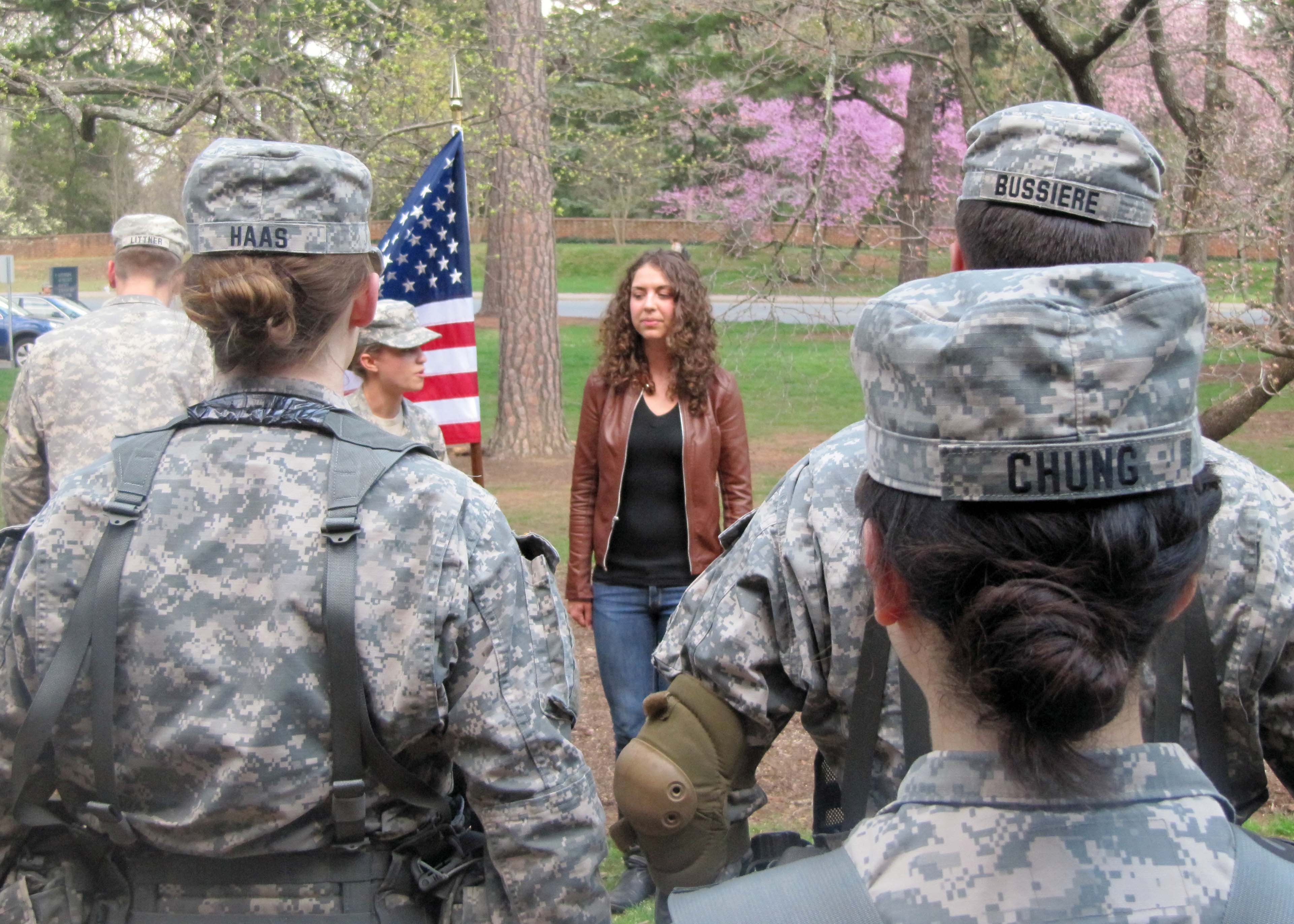March 30, 2012 — Every 36 hours, a member of the military takes her or his life, according to a report from the Center for New American Security. For returned servicemen and servicewomen, the rates are even higher; the U.S. Department of Veterans Affairs estimates a veteran commits suicide every 80 minutes.
What causes some servicemen and servicewomen to suffer high rates of suicide, divorce and domestic violence and others to be resilient? Are there ways to prevent the stress of deployment and combat from exacting such a heavy toll? Most importantly, what factors contribute to a soldier’s resilience in the face of extreme stress?
These are questions that University of Virginia doctoral student Erin Nekvasil has asked herself. She has chosen to make it her life's work to improve the mental health of active troops and their families.
Her interest in human behavior was piqued during a spring internship with the FBI's Behavior Analysis Unit while an undergraduate student at Patrick Henry College in Loudoun County. After finishing her bachelor's degree, she worked there for two years as a research analyst.
"I enjoyed the assessment we were doing there. But I also wanted to work with those who have experienced violent trauma," she said. "Joining the Army was a way I could do both."
On March 22, the U.S. Army commissioned Nekvasil as a second lieutenant.
She is a second-year Ph.D. student in the clinical psychology program of U.Va.'s Curry School of Education, taking part in the Army's Health Professions Scholarship Program. In return for full tuition and a monthly stipend, Nekvasil will serve as a clinical psychologist for the Army for a minimum of three years upon completion of her degree in 2015.
She will work closely with soldiers prior to, during and following their deployments – including those to war zones – as well as their families back home.
"The complexity is what draws me," Nekvasil said. "The responsibility is daunting and sobering, but it also really appeals to me."
Her interests focus simultaneously on risk assessment and the effects of violent trauma, both of which played a major role in her decision to join the Army.
"I am most interested in knowing the 'how' and the 'why' people do what they do," Nekvasil said. "What is it at work both inside and outside of a person that is making them behave a certain way? Assessment is what we do to get to the answers of those questions."
Nekvasil is currently an Army reservist. That changes during her fifth year of study, when she completes a yearlong internship at one of five major Army medical centers. The summer prior, Nekvasil will become active duty and be promoted to captain, and will complete the Army's nine-week Officer Training School in San Antonio.
Army clinical psychologists conduct fitness-for-duty evaluations, which measure a soldier's ability to engage in certain assignments. In addition to pre-deployment assessment, evaluations may also include interviewing a referred soldier after he or she returns from deployment to measure stress and evaluate them for post-traumatic stress disorder.
"It is traumatic to do traumatic things over and over, as one is often required to do in a war zone," Nekvasil said. "For example, seeing a fellow soldier lose his life or to be injured and forced to live with chronic pain, all of these things are very difficult."
In addition to the soldiers learning to live with their own experiences, Nekvasil explained that these traumas also have a great impact on their families. She said she envisions herself working closely with them, too.
"There is a need, and I feel a pull to meet it," she said. "Family members can never fully understand what their loved one has experienced. I see my job as working with soldiers and their families to combat issues like divorce, suicide and domestic violence."
The goal of a clinical psychologist is to promote resiliency, Nekvasil said. "Most soldiers are resilient. But that doesn't mean it isn't difficult," she said.
Nekvasil helps fill a major need for the Army, said her adviser, Curry professor Dewey Cornell. "Erin is an outstanding doctoral student with a strong sense of patriotism and dedication to public service," he said. "She has considered this decision very carefully and I am extremely proud of her willingness to make this commitment."
Between now and when she goes on active duty, Nekvasil said she is focused on becoming the best clinical psychologist she can be.
"The Curry School is a great place for me to hone my skills in assessment, interviewing, how to guide therapy without giving advice. I plan on using every element of the program – assessment, research and practicum – to gain the best training I can."
– by Audrey Breen
Media Contact
Article Information
April 1, 2012
/content/uva-grad-student-feels-called-provide-mental-health-services-soldiers-families

